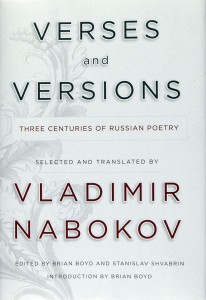The publication of The Original of Laura: (Dying Is Fun) is moving ahead. It’s listed on the Random House/Knopf website for release in November. You can pre-order it from amazon.com at $23.10 (discounted from $35.00) for November 3rd delivery (ISBN: 0-307-27189-7/978-0-307-27189-1). If you’re in Britain, amazon.co.uk is asking £22.22 for the same edition.
There is no dust jacket image yet. The Knopf blurb describes the 288-page package:
At last: Vladimir Nabokov’s final and unfinished novel, in print—thirty years after his death, years in which the fate of The Original of Laura was in constant and closely watched question.
When Nabokov died in 1977, he left instructions for his heirs to burn the 138 handwritten index cards that made up the rough draft of The Original of Laura. But Nabokov’s wife, Vera, couldn’t bear to destroy her husband’s last work, and when she died, the fate of the manuscript fell to her son. Dmitri Nabokov, now seventy-four— the Russian novelist’s only surviving heir, and translator of many of his books—has struggled for decades with the decision of whether to honor his father’s wish or preserve for posterity the last piece of writing of one of the greatest writers of the twentieth century. His decision finally to allow publication will be passionately welcomed by both scholars and general readers. And the ingenious format of the book (which includes removable facsimiles of the index cards) will make an even more extraordinary occasion of this publishing event.
In its fragmented narrative—dark yet playful, preoccupied with mortality—we are given one last experience of a writer’s unparalleled creativity, a glimpse of his last days, and a body of work finding its apotheosis.
The book will include a short introduction by Dmitri Nabokov. In addition, Knopf is issuing an “eBook” version (ISBN: 0-307-27325-3/978-0-307-27325-3) at the same price to be released also in November. There’s no mention of the eBook on amazon.com.
I have no information on foreign language rights. I wonder if The New Yorker is going to take on serial rights. The Nabokovian, in a real sense, already has taken the first serial rights (see No. 42/Spring 1999, pp. 34 (#2) & 37 (#5)).
A voice hums in my head: Laura is a wild and florid set of fragments. And then I hear: The book, he answered, is a novel too—at least, after a fashion.


Recent Comments